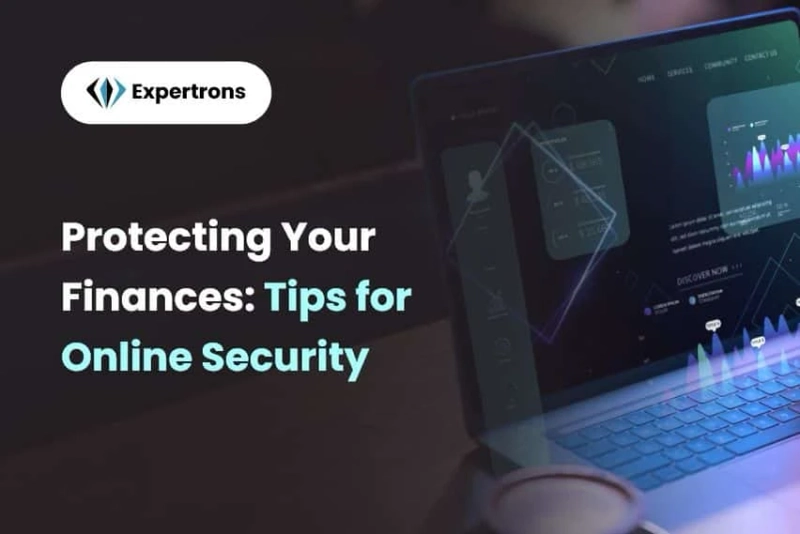Introduction
In the digital age, convenience reigns supreme. A tap, a swipe, and voilà – bills paid, investments tracked, and even that vacation home booked! But amidst this online financial frenzy lurks a dark side: cybercrime. Financial Security is no longer an option; it\'s a necessity. So, how do we build a digital fortress against these modern-day wolves? Here are some key tips:
Lockdown Your Logins:
Strong Passwords: Ditch the "Password123"s! Create complex passwords with a mix of upper and lowercase letters, numbers, and special characters. Don\'t reuse them across different platforms, and change them regularly.
Two-Factor Authentication (2FA): Enable 2FA wherever possible. This extra layer of security adds a unique code sent to your phone or email, making it harder for unauthorized access even if your password is compromised.
Beware of the Phishing Hook: Suspicious Emails: Scrutinize emails claiming to be from your bank or financial institution. Look for misspellings, grammatical errors, and generic greetings. Hover over links to see the actual destination URL before clicking.
Phone Scams: Don\'t share personal or financial information over unsolicited calls. Legitimate institutions won\'t ask for such details over the phone.
Fortress Your Devices:
Software Updates: Keep your operating systems, browsers, and antivirus software updated. These updates often patch online security vulnerabilities exploited by hackers.
Beware of Public Wi-Fi: Avoid conducting financial transactions on public Wi-Fi networks. If you must, use a VPN (Virtual Private Network) for added online security.
Monitor and Secure:
Regular Account Reviews: Regularly check your bank statements, credit card reports, and investment accounts for any suspicious activity. Report any discrepancies immediately.
Shred Sensitive Documents: Don\'t just toss away old bills or statements containing your financial information. Shred them thoroughly before discarding them.
Knowledge is Power:
Stay Informed: Keep yourself updated about the latest cyber threats and scams. Subscribe to our online security blogs or newsletters to stay ahead of the curve.
Seek Professional Help: Don\'t hesitate to consult a financial advisor or cybersecurity expert for personalized advice on your financial security.
Remember, online security is a continuous journey, not a one-time fix. By incorporating these tips into your daily routine and staying vigilant, you can build a robust defense against cyber threats and ensure the safety of your hard-earned finances in the digital world.
Embrace a Secure Future:
While this blog focuses on practical tips for online security, remember that building comprehensive financial security requires a broader understanding of the financial landscape. Consider exploring programs like Expertrons PG Certification in Banking and Financial Services (BFSI) to gain in-depth knowledge about financial products, regulations, and risk management. Such programs can empower you to make informed financial decisions and navigate the complexities of the financial world while offering you 100% Placement Assistance in top financial firms.
Protecting your finances in the online world requires awareness, vigilance, and proactive measures. By implementing these tips and continuously seeking knowledge, you can build a digital fortress and ensure a secure financial future. Remember, you have the power to protect your hard-earned wealth – use it wisely!
Frequently Asked Questions
1. How strong should my passwords be?
Aim for at least 12 characters, including a mix of uppercase and lowercase letters, numbers, and special symbols. Avoid using personal information like birthdays or pet names. Consider using a password manager to generate and store strong online security.
- What are some common phishing tactics?
Phishing emails often create a sense of urgency or pressure, claiming your account is at risk or offering "too good to be true" deals. Look for typos, grammatical errors, and generic greetings. Always hover over links before clicking to see the actual destination URL.
- Is it safe to use public Wi-Fi for online banking?
Public Wi-Fi networks are not secure and can be easily intercepted by hackers. Avoid conducting financial transactions on public Wi-Fi, or use a VPN for added online security.
- How often should I update my software and antivirus?
Set your software and antivirus to update automatically whenever possible. These updates often endanger financial security by hackers.
- What are some ways to protect myself from phone scams?
Never give out personal or financial information over the phone to someone you don\'t know. Legitimate institutions will not ask for such details over the phone. If you\'re unsure about a call, hang up and contact the institution directly using a phone number you know is correct.
- What should I do if I suspect my financial information has been compromised?
Contact your bank, credit card company, and any other affected institutions immediately. Change your passwords and monitor your accounts for suspicious activity. You can also report the incident to the authorities.
- Can learning about financial security help me in other areas of my life?
Yes! Understanding basic financial principles and online security practices can help you make informed decisions in many areas of your life, such as budgeting, investing, and shopping online.
- Where can I learn more about online security and financial protection?
There are many resources available online, including government websites, cybersecurity blogs, and educational programs like Expertrons PG Certification in Banking and Financial Services (BFSI). This program, with its 100% Placement Assistance, offers comprehensive knowledge about financial products, regulations, and risk management, empowering you to make informed financial decisions and navigate the complexities of the financial world while ensuring your online security.
- How can I stay informed about the latest cyber threats?
Subscribe to security blogs or newsletters from reputable sources. You can also follow cybersecurity experts on social media for updates and tips.
- What are some additional tips for protecting my finances online?
- Be cautious about clicking on links or opening attachments in emails, even from seemingly familiar senders.
- Use strong authentication methods like 2FA whenever possible.
- Be careful what information you share online, especially on social media.
- Back up your important financial data regularly.
Author:
Aditya Sanjay Sakhare



